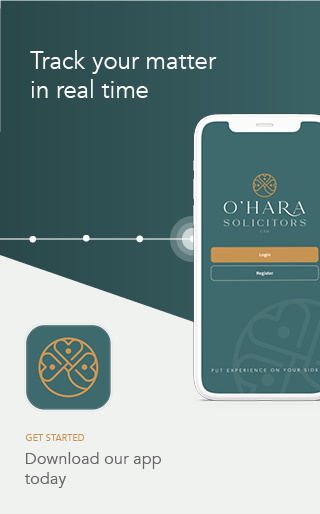Probate
Probate

Probate is the legal right to deal with someone’s estate when they die. It includes making decisions regarding property, money and possessions. You can choose to administer someone’s estate yourself, but it can be a complicated, lengthy and an emotional process, so in many instances seeking professional help is a sensible approach.
Executors
If you have been chosen by a family member or friend to be the executor of their will, you have been given responsibility to manage their estate according to the terms outlined in their will and to protect their assets under the various laws and rules that govern estate administration in the UK.
An executor’s duties may include responsibilities such as:
- organising the funeral, notices for the paper, flowers
- locating the will and obtaining a copy of the death certificate
- ensuring property and assets are safe and secure
- determining the value of assets
- applying for Probate
- paying insurance policies, debts and taxes
- collecting debts owed and monies belonging to the deceased from financial institutions and insurance companies
- lodging tax returns for the deceased and for the estate
- selling properties and assets
- reporting to beneficiaries
- distributing the proceeds of the estate to beneficiaries
- setting up trusts
Being an executor can be overwhelming, particularly when you are grieving, but rest assured we can guide you through.
Is probate necessary?
Although in the majority of cases probate will be necessary, before applying for probate you should check that it is needed. If for example the property or assets, such as shares, were jointly owned then these will automatically pass to the surviving owner. If the estate consisted only of savings, probate will not be required. If the estate has a value of less than £15,000 probate will not be required. In all other cases, unless and until you have been granted probate you are not allowed to attend to financial matters or put a property on the market.
Who can apply for probate?
Only certain people can apply for probate and who is entitled to apply largely depends on whether or not there was a will. If you were named as an executor you can apply for probate. However, where there are several executors you should agree who will apply for probate, bearing in mind that up to four names may appear on the application.
If there was no will then the closest living relative can apply. This means husbands, wives, civil law partners and children or other relatives may apply but does not include partners who were living together without a legal relationship.
Applying for probate
Before applying for probate, you should make an estimation of the worth of the estate and whether or not inheritance tax will be payable. To do this you will need to write to banks, pension providers, employers, mortgage lenders etc and take into consideration any gifts given during the previous 7 years as well as other assets such as jewellery, furniture, paintings and other household items. The value of the estate must be reported to HMRC, whether or not tax is due, and you must keep copies of the will and records showing how you valued the estate.
You will also need a death certificate and the original will before you can apply for probate. You need to complete the required forms and pay the fee.
You will usually get a document in response within 8 weeks. This will either be a grant of probate or letter of administration, both of which allow you to start dealing with the estate. You will need to pay any debts or bills and distribute the assets to the beneficiaries. You must keep records about how the estate was distributed and written confirmation that beneficiaries received their share.
What if probate is contested?
Where more than one person may apply for probate or there is a question over the validity of the will and a dispute arises, you can stop a probate application by entering a caveat. The caveat lasts 6 months and ultimately if the matter cannot be settled by other means the decision about who should be granted probate may end up going to court.
We can help you through the difficult process of obtaining a grant of representation to deal with the estate of the deceased including, where necessary, liaising with HMRC regarding inheritance tax. We can also assist with the collection and distribution of assets.
If you need any assistance, contact one of our lawyers at [email protected] or call (023) 9225 9822 for expert legal advice
Private Client Most Popular Services

WILL WRITING
O’Hara Solicitor’s will writing service provides an expert service that provides peace of mind for you and your loved ones.

LASTING POWER OF ATTORNEY
Preparing a Lasting Power of Attorney (LPA) will ensure that right person will be able to make decisions for you.

PROBATE
O’Hara Solicitors can guide you through the probate process during this sensitive time with dignity and empathy.

TRUSTS
O’Hara Solicitors can assist you with structuring your business or investments through trusts.






